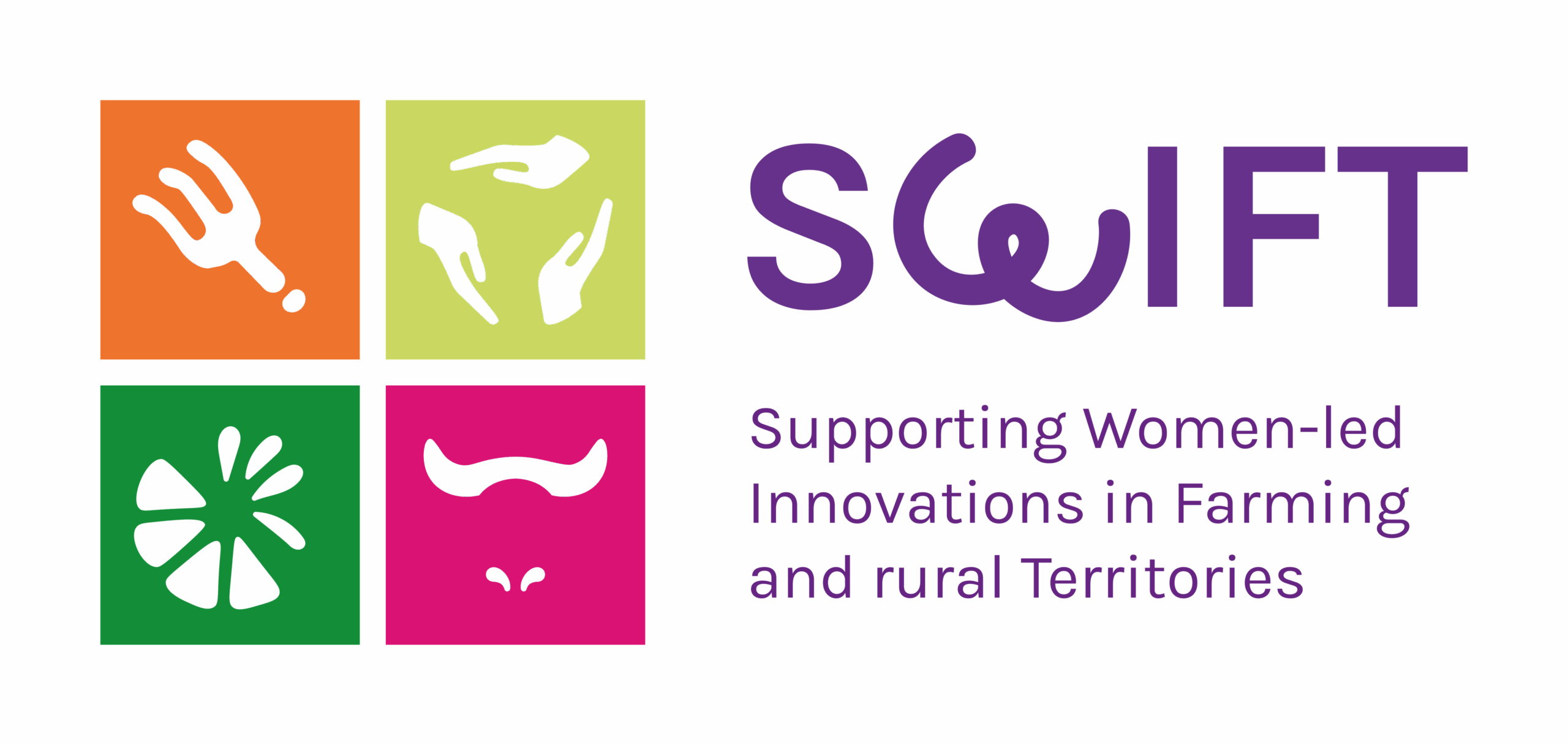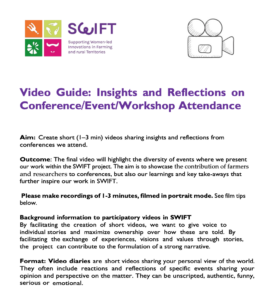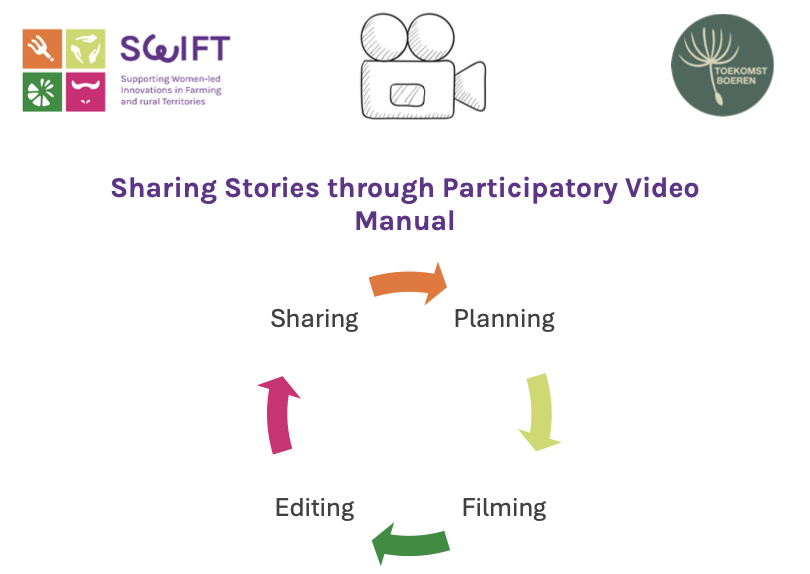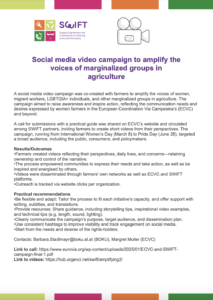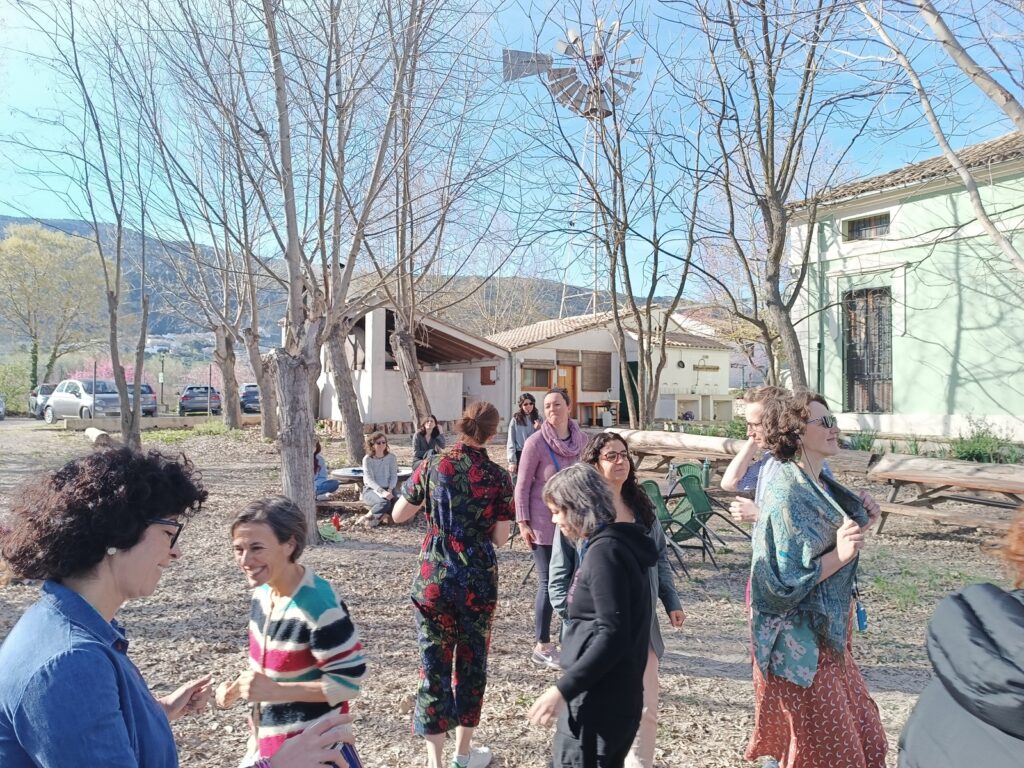
Amplifying
Women and gender-diverse people are transforming food systems. Now it’s time to amplify their voices. This space is about co-learning, peer exchange, and spreading bold ideas that challenge inequality and spark real change in agriculture. Amplify creates space for users to learn from Women-Led Initiatives (WLIs), to connect, to share, and to grow. Whether through peer coaching, hands-on workshops, or powerful participatory videos, this is where experience becomes strategy and stories become tools for transformation.
We know that every innovation is different, so all formats are co-created with the innovators themselves. That means no top-down templates. SWIFT supports the process with facilitation expertise, but ownership stays with the people doing the work.
Voices and reflections of the 2025 Nyéléni Global Forum. In September 2025, at the third Nyéléni Global Forum in Sri Lanka, SWIFT project partners joined global activists, small-scale food producers and grassroots organisers to discuss food sovereignty, intersectionality and gender justice. Ade, Martina, Olga, and Amets shared their thoughts on how adopting a feminist perspective can strengthen the struggle.
Sharing Stories and Ideas Through Videos
We hear lots of stories about agriculture, about farmers and about food. The stories we tell about our food system reflect our relationship to agricultural practice, to other actors in the food system and to the natural environment. Telling our stories can be an empowering act of raising one’s own voice and demonstrating own lived realities and viewpoints. In SWIFT we aim to amplify the voices and stories of female farmers and other marginalised groups. One way we did this was by engaging in the production of videos in different formats.
What Moves You as an Agroecological Farmer?
What are our stories, and what stories do we want to tell? These questions ignited a participatory video process among five female farmers of Toekomstboeren (the Netherlands). The process was designed in a collaborative way between academics and a member of Toekomstboeren. How, and where, the videos are shared was agreed upon as a group.
Each farmer recorded their individual stories following the guiding question: “What moves you as an agroecological farmer?”. We then watched and discussed the individual stories as a group to weave connections and explore commonalities or diversity from the inside out. Our aim was to build strength in the agroecological movement by offering a medium to record personal stories and creating a space to exchange and reflect within Toekomstboeren and in SWIFT. The videos presented here are some of those personal stories recorded by Toekomstboeren in Spring and Summer 2024.
ECVC Video Campaign
Spanning from International Women’s Day (8. March) to pride month (28. June) we coordinated a social media campaign to shine a light on the realities of women, LGBTQIA+ people and other marginalised groups in agriculture and rural areas. WLIs and other initiatives were invited to record and share short videos about their lived experiences. Look for #SwiftProject #ecvcspotlight to follow the shared stories.
Increasing Visibility of Female Agroecological Farmers in CEE – Let’s sing about it!
In October 2024, farmers, activists, researchers and other partners from Central and Eastern Europe met at Ekologiczny Uniwersytet Ludowy w Grzybowie. The aim of the meeting was to increase the visibility of women in agriculture, to develop women’s demands and increase their sense of empowerment, international cooperation, and solidarity in the name of agroecological values. To hold onto these memories and moments, they produced a film showcasing the 4 days of exchange. During this exchange they also created a song together which has become our SWIFT anthem.
Agroecology – How to Change our Food System?
In cooperation with the project “Women and Agroecology. Strengthening advocacy around agroecology and women-led initiatives in rural areas” (Kobiety i Agroekologia. Wzmacnianie rzecznictwa wokół agroekologii i inicjatyw prowadzonych przez kobiety na wsi) funded by the Videgard fund our partners Agro-Perma-Lab and IRWIR PAN created an animation about agroecology. The video explains the concept of agroecology and shows how it can become a path to transforming the current food system. It presents both the challenges we face in food production and transportation and the solutions that can be implemented at the local and global levels.
Bonding Roots: A Serious Game for Feminist Agroecology
Bonding Roots is an immersive, role-playing board game where players become small-scale farmers navigating real-world challenges in the fictional land of Swiftlingen. Designed as part of the SWIFT project, the game brings agroecological principles and feminist perspectives to life—highlighting the daily struggles, care work, and systemic injustices faced by women and queer farmers.
Players take on unique characters with personal missions and hidden goals while working collectively to implement nine core agroecology strategies. Through dilemmas, resource trade–offs, and shared decisions, the game fosters deep reflection on gender, community, and resistance. There’s no single way to “win”—success is measured in cooperation, strategy, and solidarity.
Bonding Roots is a powerful tool for education, training, and policy engagement, designed for use in workshops, schools, and activist spaces. It transforms abstract concepts into concrete action—and turns players into co–creators of more just food futures.
Putting Agroecology Into Play: Testing the Serious Game

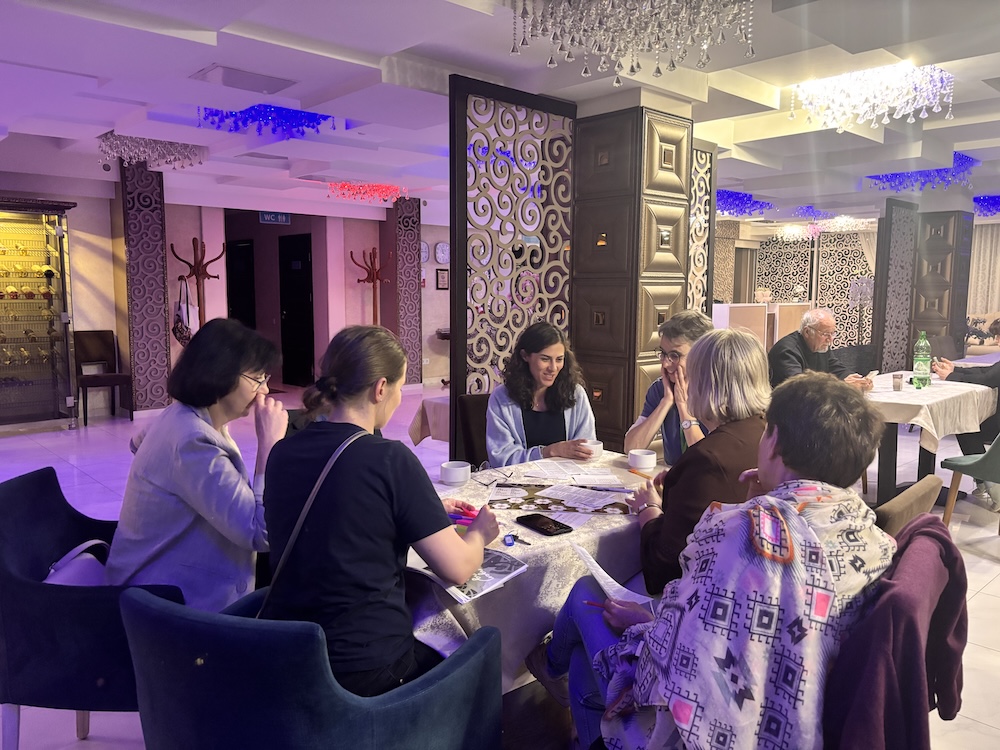

On 22 May 2025, a diverse group of agroecology practitioners, academics, and activists from Ukraine, Georgia, Iran, the USA, and FAO gathered to test the SWIFT serious game—a role-based simulation that brings agroecological dilemmas and power dynamics to life.
The result? A powerful, immersive experience. Participants described the game as engaging, thought-provoking, and highly relevant for settings like universities, local councils, and policy trainings. Rather than a “game” in the traditional sense, the session unfolded more like a collaborative exploration, reflecting the messy, real-life trade-offs that shape food systems and gender dynamics.
Key feedback:
Deep relevance: A strong tool for introducing agroecological thinking to newcomers or decision-makers outside the movement.
Collective learning: Participants naturally gravitated toward cooperative choices, sparking rich discussion about values, resistance, and alternatives.
User insight: Suggestions included clearer gender representation, integrating resource counters into player cards, and offering more intuitive game-phase guidance.
Format matters: The game works best as a dedicated 3-hour workshop, not a casual activity—facilitators should experience a full test run beforehand.
From gardener-activists to policy advisors, all testers highlighted the game’s potential to make the invisible visible—turning abstract structures into lived, sharable moments.
With some practical tweaks—like laminated cards and erasable markers—this game is ready to be rolled out as an interactive training and facilitation tool for building agroecological understanding across institutions, borders, and beliefs.
